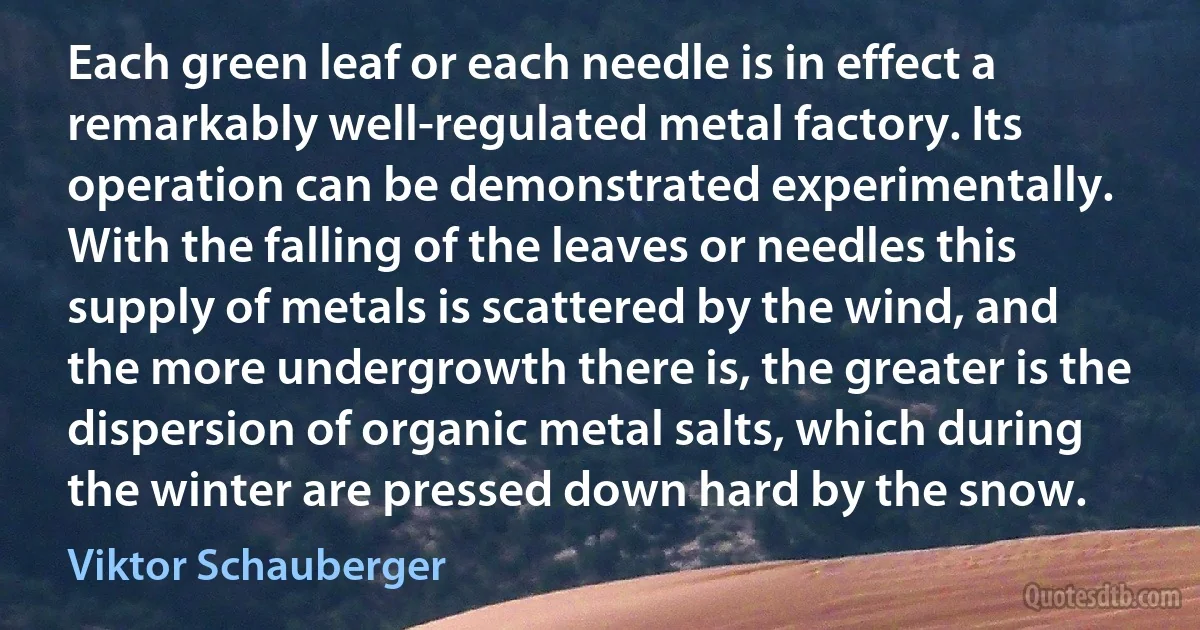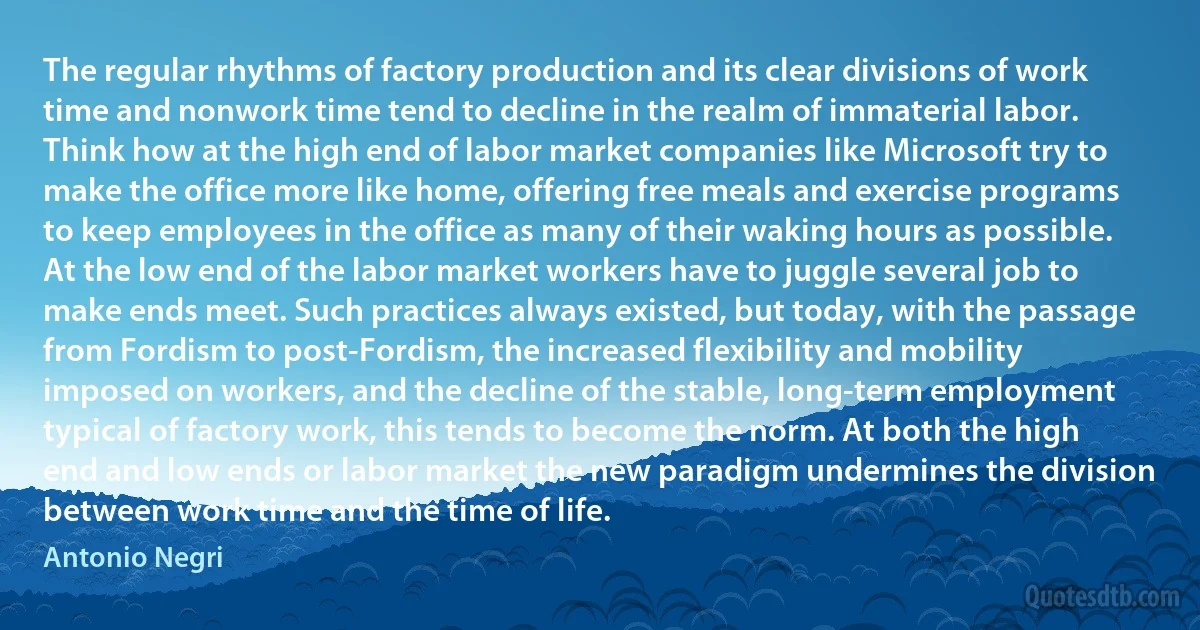Factory Quotes - page 7
I see no reason why children as young as six, seven, or even three shouldn't be allowed to produce corporate comic books to relentless monthly deadlines. And have to write several titles at once to make a decent living. That's what a proper childhood's all about isn't it? This is the 21st century after all and these unruly little bastards have been milking post-Victorian sentimentality for all it's worth for way too long. Time to get kids back where they belong - up chimneys, down mines, and tied to the printing presses! If you can pick up a brick to smash a car window, then you can build me a textile factory, son ... here's a whole half dollar for your day's labor. Now put down that Justin Timberlake bio-comic and get back on the production line!

Grant Morrison
To be sure, the moment the study passes beyond bare description the student must leave the landscape itself, must go beneath it, even to state what its form represents - to translate the outer foliage of a forest into the forest, the outer surface of buildings into different kinds of buildings, etc.... Our interest in houses, factories, and forests cannot be confined to their surface form; only in the limited field of aesthetic geography could such a restriction be justified. Our very use of such words as house, barn, factory, office building, etc., indicates that we are primarily concerned with the internal functions within these structures, the external form is a secondary aspect which we use simply as a handy means to detect the internal function - and should use only insofar as it is a reliable means for that purpose.

Richard Hartshorne
He was asking too many questions and he was asking them too quickly. They were stacking up in my head like loaves in the factory where Uncle Terry works. The factory is a bakery and he operates the slicing machines. And sometimes a slicer is not working fast enough but the bread keeps coming and there is a blockage. I sometimes think of my mind as a machine, but not always as a bread-slicing machine. It makes it easier to explain to other people what is going on inside it.

Mark Haddon
I walk up and down the rows. The heads look like rubber halloween masks. They also look like human heads, but my brain has no precedent for human heads on tables or in roasting pans or anywhere other than on top of a human bodies, and so I think it has chosen to interpret the sight in a more comforting manner. - Here we are at the rubber mask factory. Look at the nice men and woman working on the masks.

Mary Roach
My first favourite book was 'Are You My Mother?' A picture book about a lost bird. After that my favourites changed almost yearly. I loved everything by Roald Dahl, but my favourite was probably 'Charlie and the Chocolate Factory.' A librarian gave me a first edition of that book, which I treasure.

Rick Yancey
So we and our elaborately evolving computers may meet each other halfway. Someday a human being, named perhaps Fred White, may shoot a robot named Pete Something-or-other, which has come out of a General Electric factory, and to his surprise see it weep and bleed. And the dying robot may shoot back and, to its surprise, see a wisp of gray smoke arise from the electric pump that it supposed was Mr. White's beating heart. It would be rather a great moment of truth for both of them.

Philip K. Dick
When people ask me why I don't eat meat or any other animal products, I say because they are unhealthy and they are the product of a violent and inhumane industry. Chickens, cows, and pigs in factory farms spend their whole lives in filthy, cramped conditions only to die a prolonged and painful death.

Casey Affleck
Some economists also use the terms Fordism and pos-Fordism to mark the shift from an economy characterized by the stable-long-term employment typical of factory workers to one marked by flexible, mobile, and precarious labor relations: flexible because workers have to adapt to different tasks, mobile because workers have to move frequently between jobs, and precarious because no contracts guarantee stable, long-term employment. Whereas economic modernization, which developed Fordist labor relations, centered on the conomies of scale and larga systems of production and exchange, economic postmodernization, with its post-Fordist labor relations, develops smaller-scale, flexible systems.

Antonio Negri
the hegemony of immaterial labor does, though, tend to change the conditions of work. Consider, for example, the transformation of the working day in the immaterial paradigm, that is the increasingly indefinite division between work time and leisure time. In the industrial paradigm workers produced almost exlusively during the hours in the factory. When production is aimed at solving a problem, however, or creating and idea or a relationship, work time tends to expand to entire time of life. And idea or image comes to you not only in the office but also in the shower or in your dreams.

Antonio Negri
[Michel Foucault] argues, prison resembles the factory, which resembles the school, which resembles the barracks, which resembles the hospital and so forth. They all share a common form that Foucault links to the disciplinary paradigm. Today, by contrast, we see network everywhere we look.

Antonio Negri
The capitalist call workers to the factory, for example, directing them to collaborate and communicate in production and giving them the means to do so. In the paradigm of immaterial production, in contrast, labor itself tends to produce the means of interaction, communication, and cooperation for production directly. Affective labor always directly constructs a relationship.

Antonio Negri



